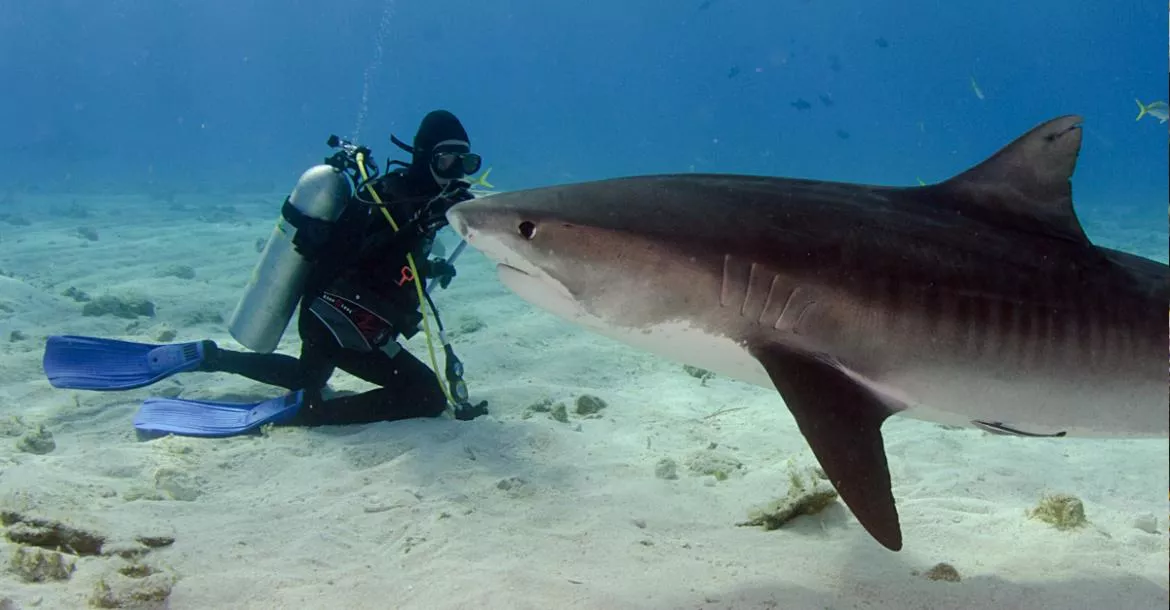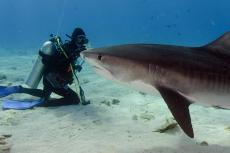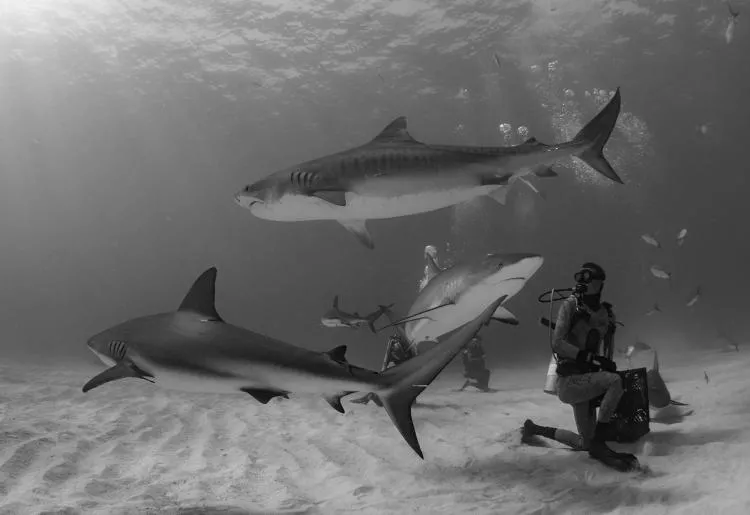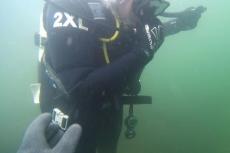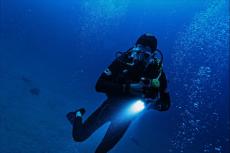The Value of Shark Dives
Sharks would not come to shark dives without the promise of something good in it for them.
So shark dive clubs usually bring some fishy scraps—in most cases the remains left over after big fish have been cut up for sale. The scent attracts the sharks into view and provides a bit of excitement as the animals investigate and try to get a piece. But little actual food or nourishment is given. The sharks circle far and wide through the vast volume of the visible ocean, in a memorable and dramatic display, as they look over the scene, zoom in for a closer look, try for a scrap, and socialize.
The divers generally remain in an agreed-upon position so that the sharks can come and go from the food unobstructed. The procedure works well and is followed by divers around the world, almost without incident.
Unfortunately, this practice has been singled out for criticism, though no evidence to support arguments against it has been offered. Scientific studies have shown that there are no ill effects on the sharks and their subsequent behaviour, and no correlation between shark dives and shark attacks has been found.
So little food is brought, that no one animal gets enough supplementary food to make much difference to its dietary needs, and long-term studies of the travelling patterns of different animals have shown no association with the presence or absence of shark dives. One can see for oneself when watching the actions of one shark at a time, that not all of the sharks present actually approach to eat, and many seem to be there for social reasons.
Behaviour is different
Unlike other predators, they eat together calmly and without expressing aggression toward each other. They are not closely related to the terrestrial animals we know, and In many ways, their behaviour is very different. They appear to lack the tendency to bite in fear and aggression, which is typical of the mammals we are more familiar with. Sharks do not protect territories, and neither fight nor bite each other.
They don't bite the divers either.
In fact, not only are the divers enchanted by the sharks, but the sharks show an unexpected level of interest in the divers, quite apart from their response to the food, and this is as true of tiger sharks as it is of reef sharks. They appear to enjoy the event and the opportunity for socializing. The event is as special as it is because of this response by the sharks themselves, and that is an important point of which critics are completely unaware.
The criticism seems to stem from the idea that sharks really are the blood-thirsty monsters presented by the media. However, it is obvious to those who know sharks well, that they are easily able to distinguish one event from another, and don't confuse shark dives with other human activities.
Most shark enthusiasts are divers, since diving is the only way to see sharks in their own realm, so shark dives form an important basis for shark conservation. Given that a quarter of shark species are threatened with extinction, the benefits of shark dives take on greater significance. Divers seeing sharks for the first time typically use such words as "terrific," "so beautiful," "amazing animals," and speak of being enraptured by the sight. The sense of awe expressed is so powerful as to often change the person's attitude forever. They never forget, and many return again time after time to see sharks in their natural habitat, and become informed supporters of shark conservation.
Unlike other predators, they eat together calmly and without expressing aggression toward each other.

